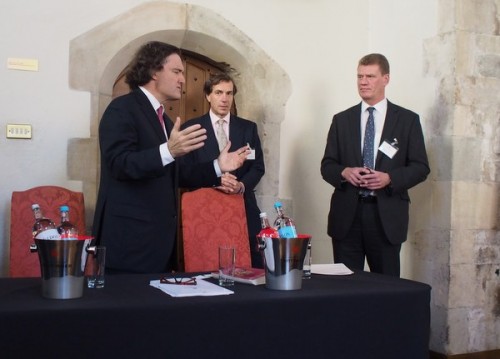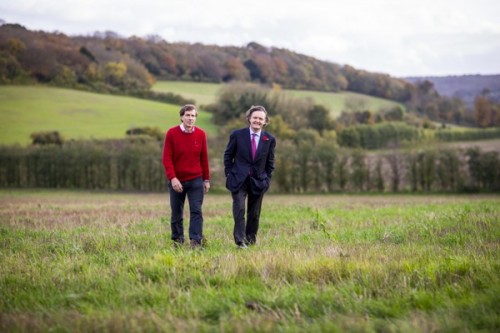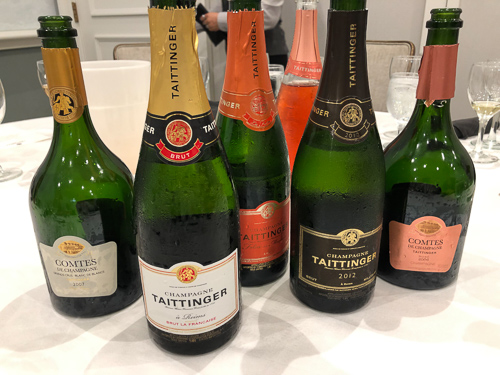
English sparkling wine has been a talking point for a while now. There’s no doubting that there is some very good English fizz being made, as the recent Noble Rot tasting showed. But today there was a further boost to the English wine scene. Pierre-Emmanuel Taittinger announced at a press conference in London that Taittinger has become the first Champagne house to buy land in the UK with the commitment to making a top quality English sparkling wine.
In a consortium with UK agency business Hatch Mansfield and some private investors, Taittinger (with a 55% stake) has purchased 69 hectares of land at Stone Stile Farm, near Chilham, Kent, not far from Canterbury. Of this farm, they say that 40 hectares has the ideal soil to make high quality wines.
‘We started this search two years ago,’ reveals Patrick McGrath of Hatch Mansfield. Aided in the search by Stephen Skelton, they finally identified the right land six months ago. They’d been looking for chalky soils, a sheltered site, and an altitude of less than 100m. The chose spot is curently part of a fruit farm, and over the next 12-18 months they’ll begin the process of planting vines: a mix of the three classic Champagne varieties. The goal is to produce 300 000 bottles a year, but the earliest that any wines will appear is likely to be 2023.

The name for the new venture? Domaine Evremond. The press conference today was held at Westminster Abbey where Charles de Saint-Evremond (1614-1703) is buried in Poets’ Corner. Evremond, a Frenchman, was a connoisseur of Champagnes. A soldier, epicurean, literary critic and writer, he found himself exiled to England in 1661. He managed to find his way into the court of Charles II – the two became buddies – and he remained a darling of London society for more than thirty years. ‘Evremond was a confidant of Charles II,’ says Pierre-Emmanuel. ‘He represented the French way of living in London. He was a true connoisseur of Champagne in France and was one of the founders of the Champagne fraternities.’
While English sparkling wine doesn’t need the endorsement of Champagne houses – the best stuff is superb – this official recognition of the potential of English fizz by one of the top Champagne producers is a big moment in the development of this relatively new sector. The news is being well received by the existing producers.
‘This should help accredit English sparkling wine internationally,’ says Ian Kellett of leading English producer Hambledon. ‘It is clearly pleasing validation of the work done by English vineyards over last 15 or 60 years. I think it will act as a torch bearer for other Champagne houses now that someone has broken the seal with the CIVC.’
[A full interview with Pierre-Emmanuel will follow.]
2 Comments on Taittinger becomes the first Champagne house to buy vineyards in England
Any mention of Britagne?
One aspect of this development, which didn’t get a mention in any of the articles I saw covering it, is climate change. If, over the next fifty years, this affects growers’ ability to achieve the desired ripeness in Champagne itself, it surely makes sense for producers to look for alternative sites at higher latitudes.
For Taittinger, this is not simply about diversifying its offerings to the market. It may also be about survival.